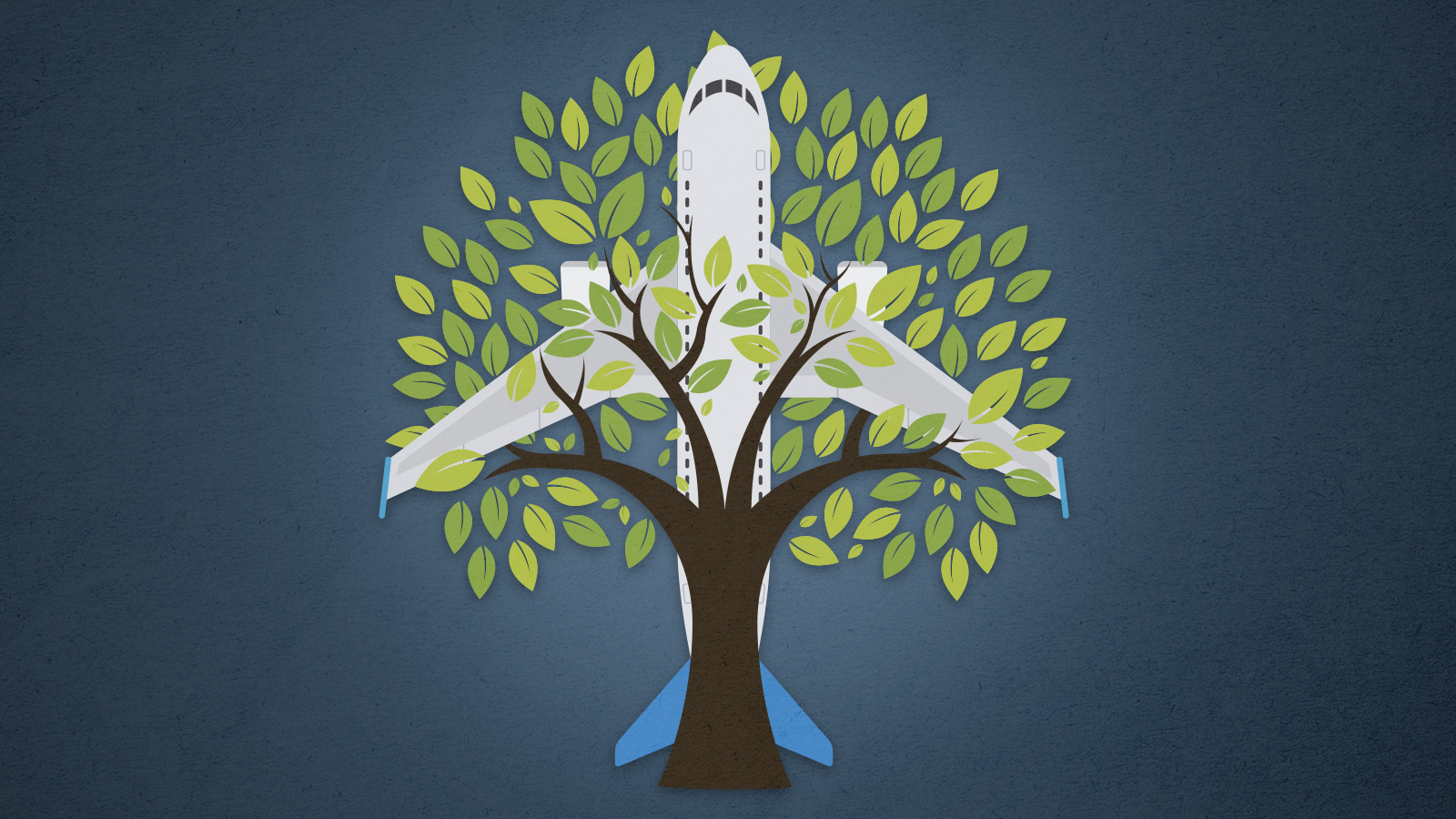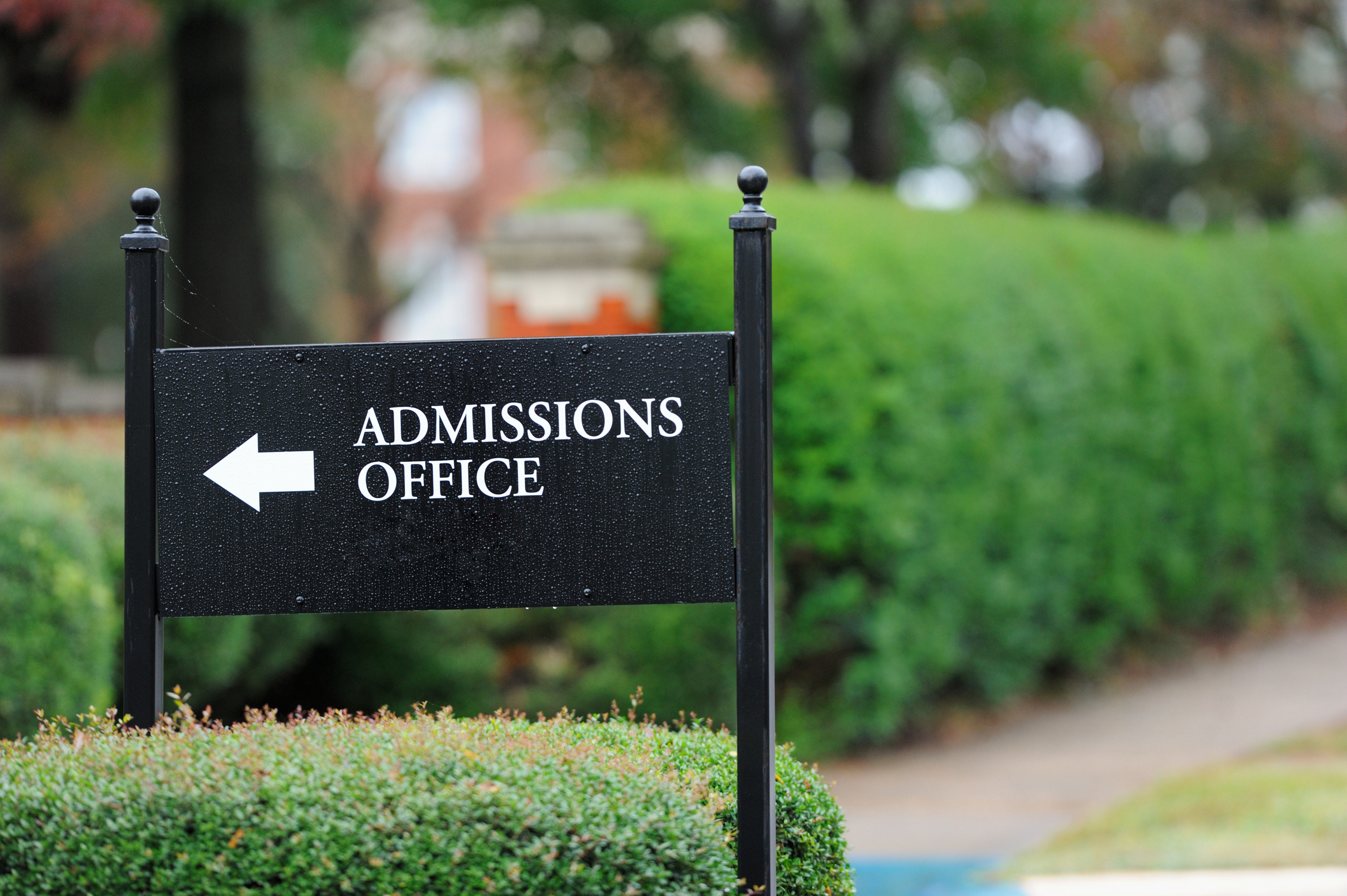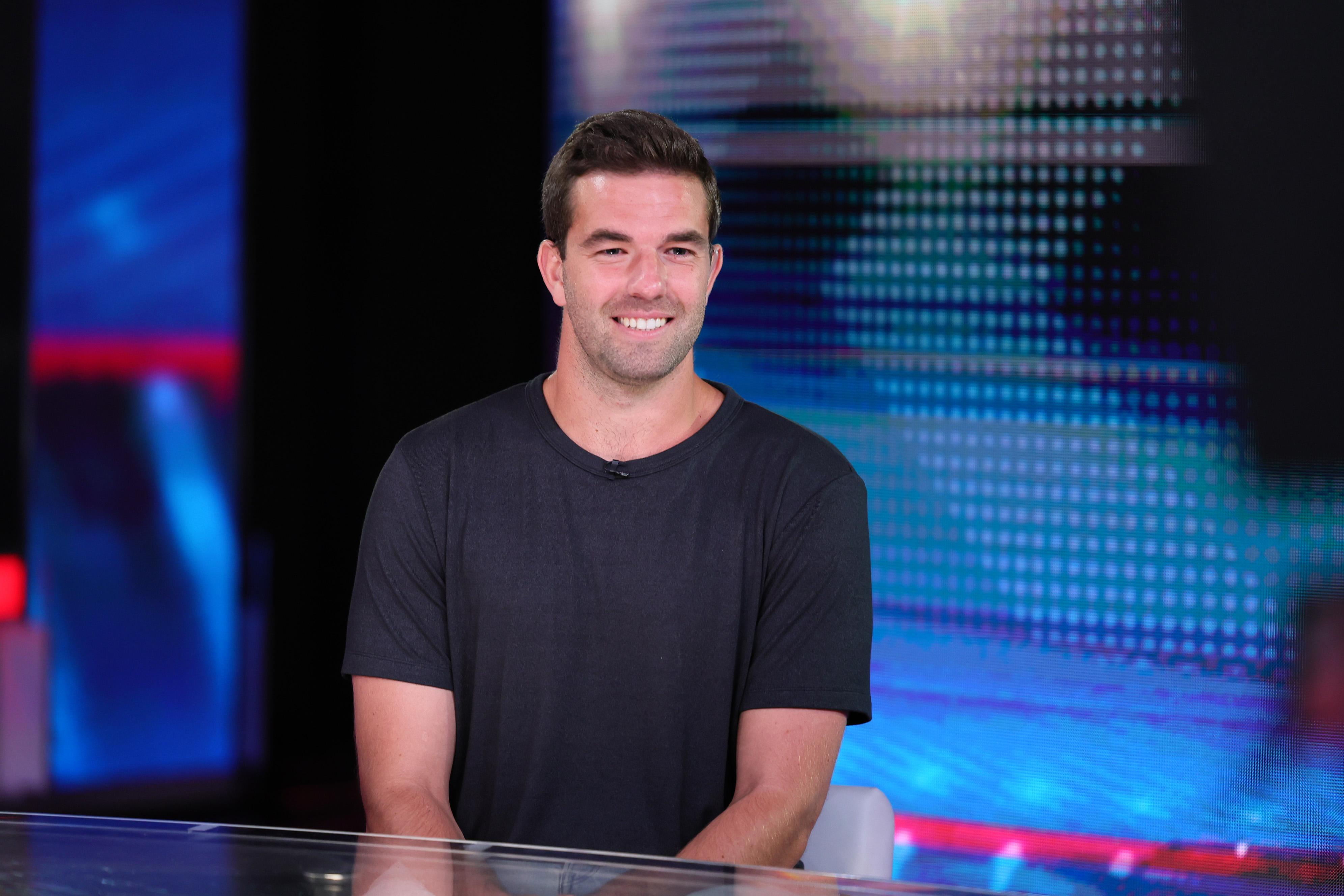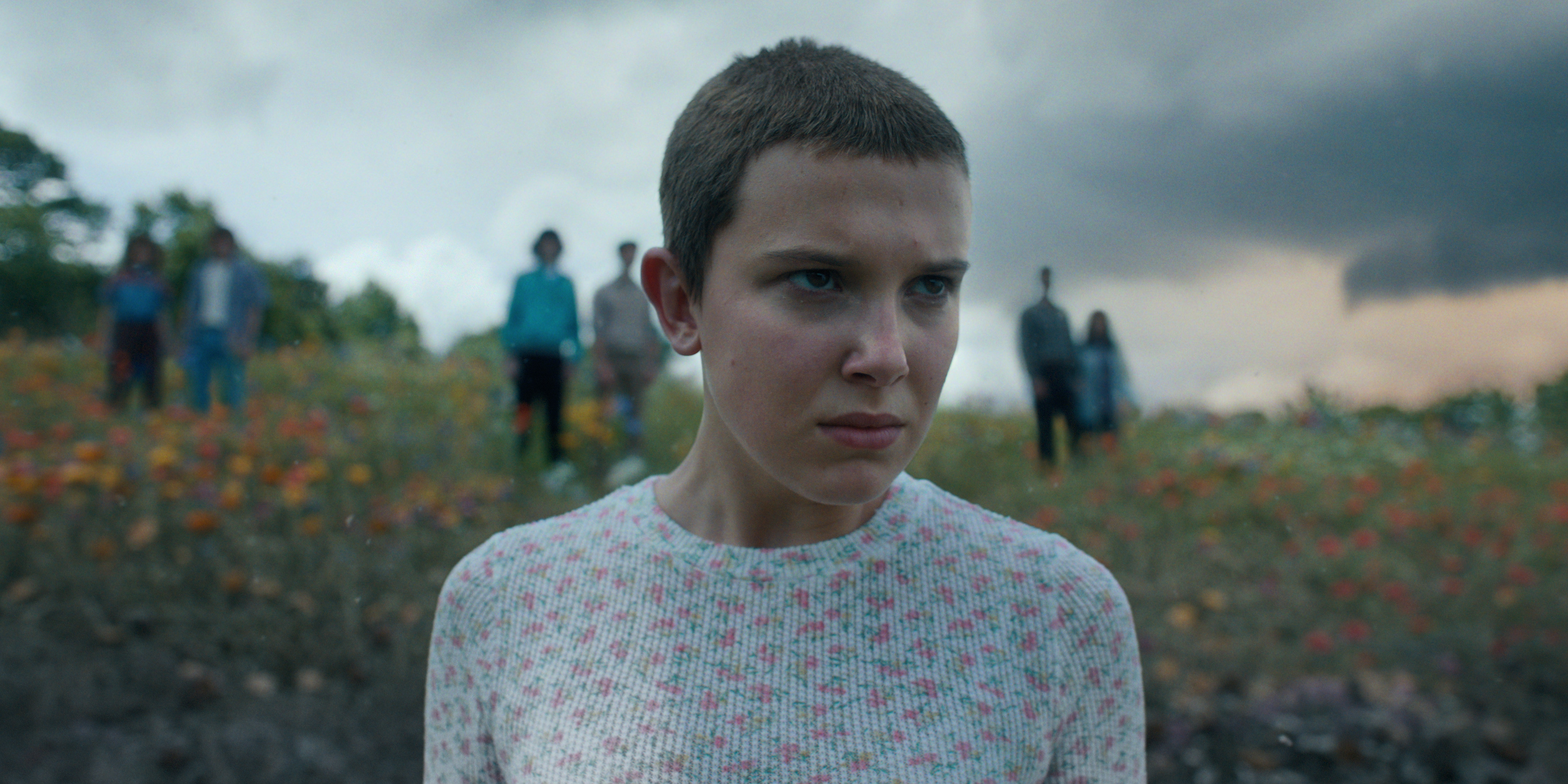Can air travel ever be 'green'?
What NASA and Boeing's new project could mean for the air travel industry


A free daily email with the biggest news stories of the day – and the best features from TheWeek.com
You are now subscribed
Your newsletter sign-up was successful
Can America's airline fleet be made more climate-friendly? NASA and Boeing are going to find out. The space agency announced it has selected the airplane company to develop a "Sustainable Flight Demonstrator" intended to reduce the industry's rather substantial carbon emissions. It's a big challenge: "If it doesn't have a sustainability wrapper all around it, if it can't meet the emissions tests, if it can't deliver significant performance advantages, then there won't be an airplane," says Boeing CEO Dave Calhoun. Why are NASA and Boeing trying to create an environmentally friendly airliner? What does a "green" airplane look like? Here's everything you need to know:
Why is NASA trying to create a 'green' airliner?
The current generation of airliners is helping heat the atmosphere. The Environmental and Energy Study Institute says that commercial airplanes and large business jets make up 10 percent of carbon emissions from American transportation sources, and 3 percent of total U.S. greenhouse gasses. Globally, the impact of air travel is even greater: Before the pandemic, "aviation emitted roughly a billion metric tons of carbon dioxide annually, about as much as the entire continent of South America in 2021," The New York Times reports. But the White House has set a goal of America achieving "net zero" carbon emissions by 2050. To get there, the airline industry will have to make significant changes. NASA's green airliner is just the start.
How does the NASA-Boeing partnership work?
NASA says it will contribute $425 million — along with a fair amount of technical expertise, as well as its experimental facilities — to the project. That shouldn't be a surprise: The agency is best known for its spacefaring missions, but its remit has always included the development of new aircraft technology. Boeing is expected to contribute the rest of the development money, which is expected to be about $725 million.
The Week
Escape your echo chamber. Get the facts behind the news, plus analysis from multiple perspectives.

Sign up for The Week's Free Newsletters
From our morning news briefing to a weekly Good News Newsletter, get the best of The Week delivered directly to your inbox.
From our morning news briefing to a weekly Good News Newsletter, get the best of The Week delivered directly to your inbox.
What will Boeing's plane look like?
It's going to have a "radical new wing design," Popular Science reports. Most airliners today have low-wing designs, across the bottom of the planes. But Boeing's new aircraft design features a high-wing design across the top of the fuselage. Those wings "will be more slender and more lengthy than typical wings on commercial aircraft" — something made possible by advances in lightweight aircraft construction materials — and they will be supported by trusses extending from the underside of the craft. And those trusses will also provide lift to the plane, making the new craft a sort of futuristic version of old-timey World War I-era biplanes, only with the wings and trusses forming a diagonal shape. Combined with new, more fuel-efficient engines, the new aircraft is expected to have carbon emissions that are 30 percent lower than current airliner models.
Who will the plane actually serve?
The plane is a "single-aisle" aircraft of the kind that "serve the typical, workaday flights of commercial air travel, connecting destinations like New York City with Chicago," Popular Science says. CNN adds that such "short- to medium-haul" airplanes make up roughly half of the commercial airplane market. That's a lot of planes: "Boeing estimates that the demand for the new single-aisle aircraft will increase by 40,000 planes between 2035 and 2050."
Can air travel ever be truly green?
It's certainly a challenge to find the right balance. While the new Boeing plane is getting the headlines, NASA is also planning a test flight this year of the X-59 "quiet supersonic technology" aircraft, Flight Global reports. The idea — as the name suggests — is to eventually resume the era of civilian supersonic air travel that ended 20 years ago when the Concorde stopped flying. But that project is getting pushback from environmentalists. One group, Public Employees for Environmental Responsibility, said in a January letter that "supersonic aircraft consume many times more fuel and produce many times the amount of pollution as current commercial flights," which is a real climate problem. NASA says it's addressing "multiple challenges to making commercial supersonic flight a reality" — including carbon emissions.
What's next?
The plan is to have greener aircraft ferrying passengers around the world sometime in the 2030s. The first test flight of Boeing's experimental plane is expected in 2028. But the NASA-Boeing project isn't the only effort to make flight more environmentally sustainable. The New York Times reports that a variety of new technologies are being contemplated by the aircraft industry, "including hydrogen-powered aircraft, fully electric planes and synthetic jet fuel made from carbon extracted from the atmosphere." The future of flight might look a lot different in the era of climate change.
A free daily email with the biggest news stories of the day – and the best features from TheWeek.com
Joel Mathis is a writer with 30 years of newspaper and online journalism experience. His work also regularly appears in National Geographic and The Kansas City Star. His awards include best online commentary at the Online News Association and (twice) at the City and Regional Magazine Association.
-
 The ‘ravenous’ demand for Cornish minerals
The ‘ravenous’ demand for Cornish mineralsUnder the Radar Growing need for critical minerals to power tech has intensified ‘appetite’ for lithium, which could be a ‘huge boon’ for local economy
-
 Why are election experts taking Trump’s midterm threats seriously?
Why are election experts taking Trump’s midterm threats seriously?IN THE SPOTLIGHT As the president muses about polling place deployments and a centralized electoral system aimed at one-party control, lawmakers are taking this administration at its word
-
 ‘Restaurateurs have become millionaires’
‘Restaurateurs have become millionaires’Instant Opinion Opinion, comment and editorials of the day
-
 The video game franchises with the best lore
The video game franchises with the best loreThe Week Recommends The developers behind these games used their keen attention to detail and expert storytelling abilities to create entire universes
-
 The buzziest movies from the 2023 Venice Film Festival
The buzziest movies from the 2023 Venice Film FestivalSpeed Read Which would-be Oscar contenders got a boost?
-
 America's troubling school bus driver shortage
America's troubling school bus driver shortageSpeed Read Kids are heading back to school, but they might be having trouble getting a ride
-
 5 college admissions trends to watch out for this year
5 college admissions trends to watch out for this yearSpeed Read College advisers and admissions experts say these trends will shape the 2023-2024 admissions cycle
-
 What's going on with Fyre Festival II?
What's going on with Fyre Festival II?Speed Read Convicted felon Billy McFarland claims the music festival will happen, for real this time
-
 The answer to rising home prices: smaller homes
The answer to rising home prices: smaller homesSpeed Read Builders are opting for fewer rooms and more attached styles as frustrated homebuyers look for affordable options
-
 5 illuminating books about the video game industry
5 illuminating books about the video game industrySpeed Read Cozy up with a few reads that dig into some of the most fascinating parts of video game history
-
 Everything we know about the final season of 'Stranger Things'
Everything we know about the final season of 'Stranger Things'Speed Read The Netflix hit will turn things up to eleven in its final bow ... eventually
